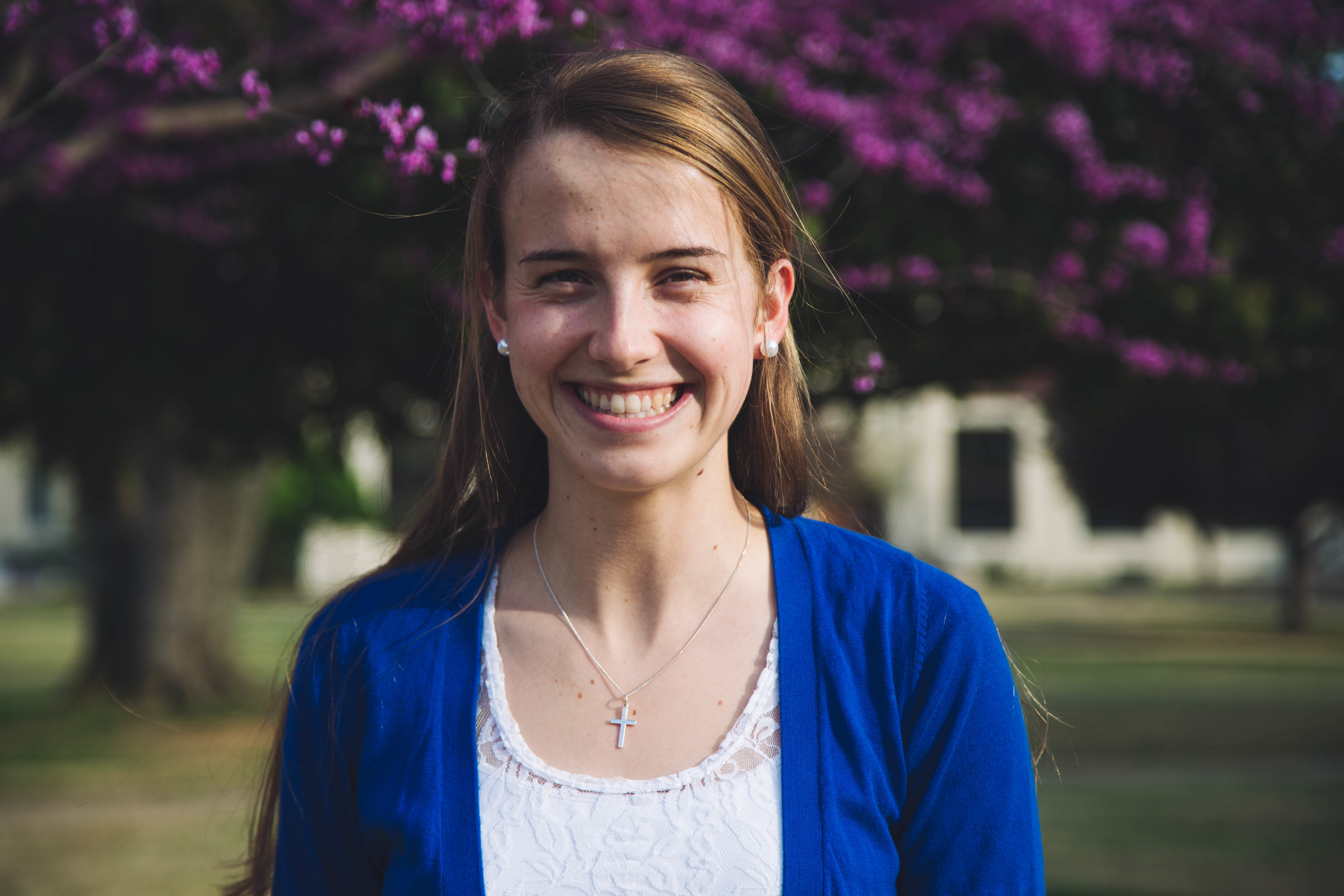![]()
In late March of 2015, Sarah Hubbard opened her email to find a long awaited letter informing her she had been selected as a recipient for a Fulbright Grant.
The grant typically accepts students who have recently graduated, graduate students or established young professionals, making Hubbard’s acceptance as an undergraduate student even more notable.
According to the Fulbright U.S. Student Program, the grant was introduced in a bill by Senator J. William Fulbright and later signed into law by President Harry S. Truman in 1946 with the intent to use excess war money to “fund the promotion of international good will through the exchange of students in the fields of education, culture, and science.”
Since its establishment, the program has grown to be the largest U.S. exchange program with over 1,900 grants offered to candidates each year. Through this, recipients are funded for “individually designed study/research projects or for English Teaching Assistant Programs” in participating countries where they will fully engage in daily life and culture.
Hubbard, a senior English education major, said the decision to apply for the grant came from passing by a flyer that appealed to her interest of teaching abroad. The flyer was posted on a bulletin board outside of her classroom. Hubbard was then encouraged by her honors professor Brad Gambill to enroll in a prestigious fellowship course and work on her application for the grant.
“Once I started the course, I began to realize how all of these things were competitive, and not just ‘you apply for the grant and your chances are decent at actually receiving it,’” said Hubbard. “So for the first semester I wrote all the essays for the application and then pretended it didn’t exist for another semester.”
Dr. Brad Gambill, coordinator of the Office of Undergraduate Scholarship and Prestigious Fellowships, saw the potential in Hubbard from the beginning, and knew that her chances were high for being selected for the grant.
“Sarah is a go-getter. She’s been doing conference presentations since she was a freshman and also sought out international experience teaching English as a second language in both Lithuania and China. She has also been proactive in her work with JBU faculty members, including Professors Grace Davis and Ed Klotz and Dr. Warren Roby,” said Gambill. “In short, she was a strong candidate before she began the application process.”
With that being said, that is not to downplay the rigor of the application and selection process for the Grant. With the help of various faculty, including Gambill, Hubbard spent close to a year drafting and revising her essays required for the application process.
“I read probably eight or so drafts of Sarah’s two application essays and marked them up with comments as thoroughly as I could,” said Gambill. “There are two relatively short essays required of Fulbright applicants: one a personal essay where you explain “who you are,” and another where you discuss how your past experience and passions make you a good fit for the project you want to pursue in the country. However, the two relatively short essays have to be as close to perfect as possible. Sarah was very patient through this process.”
Once her essays were perfected, Hubbard was then referred by the University, reviewed by the U.S Fulbright Commission and finally recommended by the U.S to her country of choice, Turkey. The Turkish Fulbright Commission finalized the decision.
Close friend and Senior Kelsey Rea has walked closely with Hubbard during her application process and has seen nothing but passion and dedication exude from Hubbard during each step of the way.
“She was student teaching when she received the email that she was officially chosen for the Fulbright Grant and I screamed for her when I got the text,” said Rea. “She was full of pure joy and excitement, and getting to be with a best friend as they experience that is so fun, and I’m so incredibly proud of her.”
In late September, Hubbard will embark on a nine-month journey teaching at a university in Turkey through the Grant. Though she does not know full details at this point, she expects to have a 40-hour workweek with 20 hours devoted to teaching at a university and 20 hours used for prep and extracurricular work.
“I am very excited at this point,” said Hubbard. “I think I will be more nervous as it gets closer and I begin to get more details, but right now I am very excited.”





